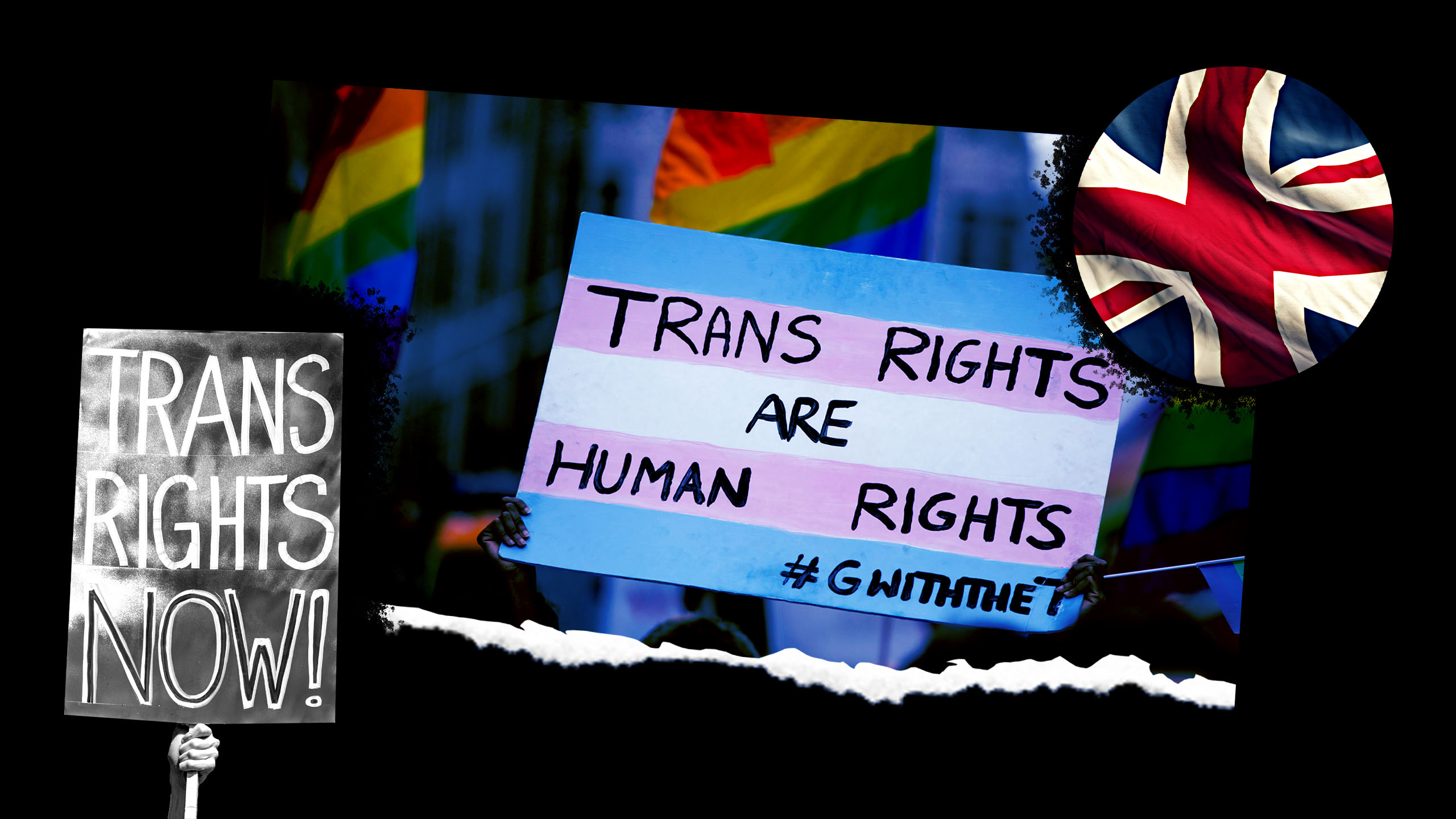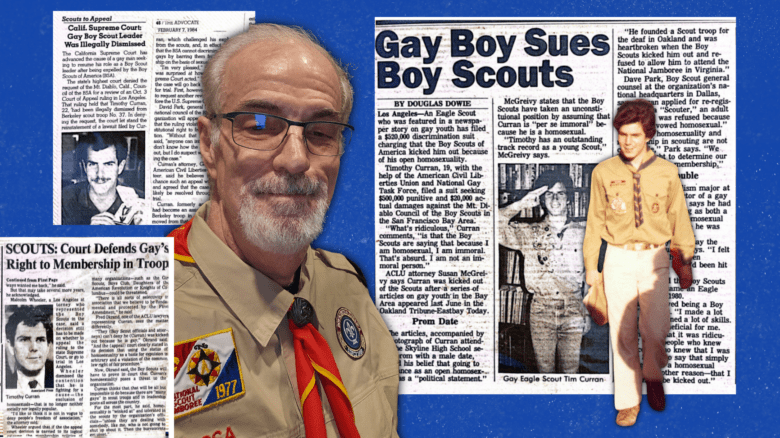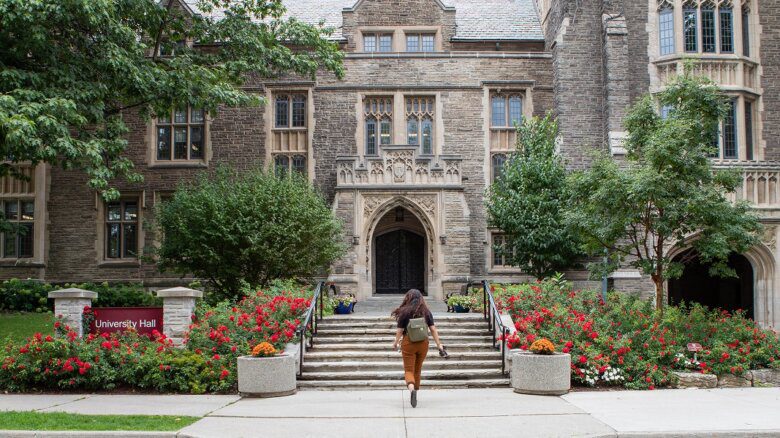Thousands of LGBTQ+ people and allies across the United Kingdom are protesting the British government’s refusal to ban anti-trans conversion therapy.
On April 10, demonstrators gathered at 10 Downing Street, the office of U.K. Prime Minister Boris Johnson, chanting “trans power,” “keep trans in the ban” and “LGB with the T.” Dozens of speakers spoke at the protest, including prominent LGBTQ+ activist Peter Tatchell, who reportedly told the crowd that the government “has given us a half-baked ban, which we will never ever accept.”
Organizers estimated that around 3,000 people attended the rally, making it one of the largest-ever U.K. protests in support of trans rights, according to Vice.
“Conversion therapy is violence,” artist Rudy Loewe, who attended last weekend’s protest, told the British magazine i-D. “There is nothing wrong or shameful in being trans. No trans person should feel like there’s something wrong with them because of their gender. It almost made me cry when I saw how many people were here to fight against conversion therapy.”
On the same day, more than 200 people attended a protest in Belfast, as well as a smaller solidarity action held in Dublin, the Irish queer news outlet GCN reported.
The last large-scale trans protest in London took place in January, when a crowd gathered outside BBC headquarters to protest the publication of an article claiming lesbians are “being pressured into sex by some trans women,” according to OpenDemocracy. Protest organizers Trans Activism U.K. pointed to the article as an example of the outlet’s “clear agenda of hate and discrimination.”
The British media has a long history of overt transphobia, which has become more aggressive since around 2017. Trans people are routinely smeared, harassed and scapegoated in the press, with attacks often cloaked in language around “protecting” women, lesbians or children.
Original plans for banning conversion therapy did include gender identity. After the U.K. government under former Prime Minister Theresa May promised to outlaw LGBTQ+ conversion therapy in 2018, Johnson originally announced that there would be no ban at all. After backlash, he instead proposed a ban that covered forcible attempts to change sexual orientation but left out gender identity.
“Keep trans in the ban.”
A petition calling for trans conversion therapy to be included in the ban amassed over 130,000 signatures within a week. Jayne Ozanne, founder and chair of the Ban Conversion Therapy Coalition, told the British queer media outlet PinkNews that the response “shows how much the British public care about one of the most marginalised groups in our society.”
“The prime minister would do well to listen to that concern,” Ozanne said.
Iain Anderson, the government’s former LGBT Business Champion who resigned over the flawed ban, told British broadcaster ITV News, “What the government is doing is trying to create a wedge between LGB people and trans people … We have a tabloid debate going on about people’s lives.”
Excluding gender identity from the conversion therapy ban is just the latest in a list of political attacks on the trans community. The government abandoned plans to update the Gender Recognition Act (GRA) in 2020, and in 2021 the government’s LGBTQ+ advisory panel was disbanded after it supported introducing self-ID. The Equality and Human Rights Commission, Britain’s equalities watchdog, has repeatedly met with anti-trans hate groups, and recently published guidelines on how businesses can ban trans people from single-sex spaces like bathrooms.
U.K. voters, including those who support Johnson’s own party, broadly agree that trans conversion therapy should be banned. Sixty-two percent of the public supports banning trans conversion therapy, including 58 percent of self-identified Conservatives, according to a YouGov survey of 1,826 respondents released on April 12. Only 19 percent of this group said trans conversion therapy should not be banned.
Despite the widespread support for trans rights in the U.K., several major British media outlets attempted to downplay this weekend’s demonstrations in their coverage. The Daily Mail, the BBC, Sky News and The Guardian claimed that “hundreds” of protesters turned out to the event, and all referred to the protest slogans being chanted on the streets as “shouting.”


 Why you can trust Xtra
Why you can trust Xtra


